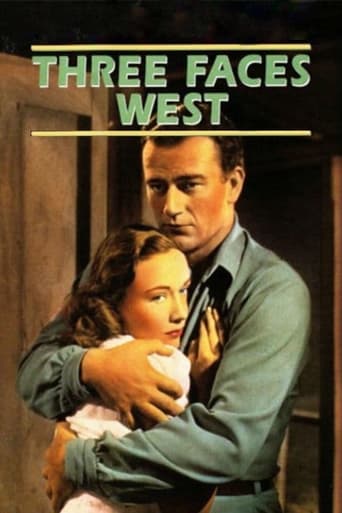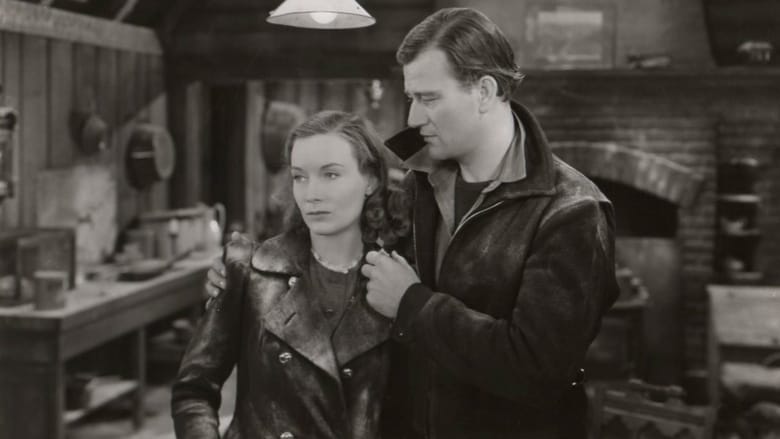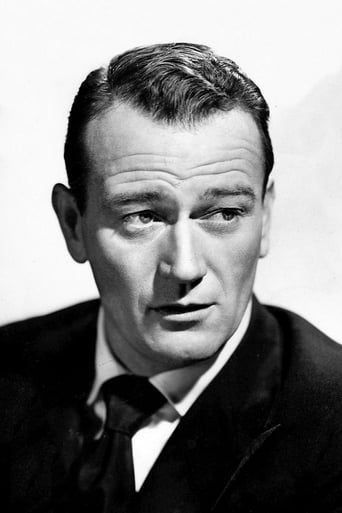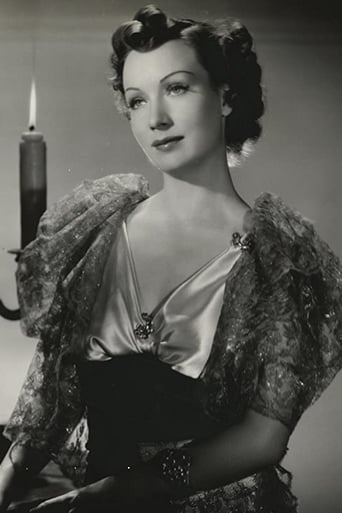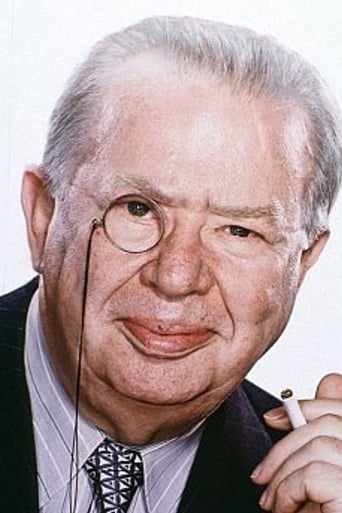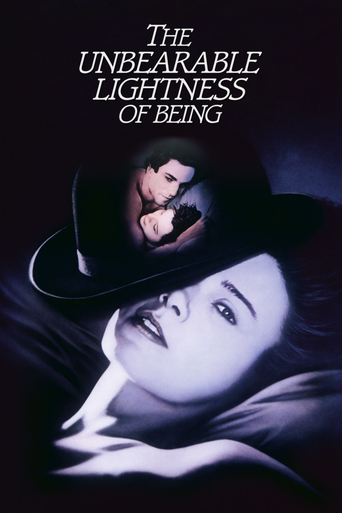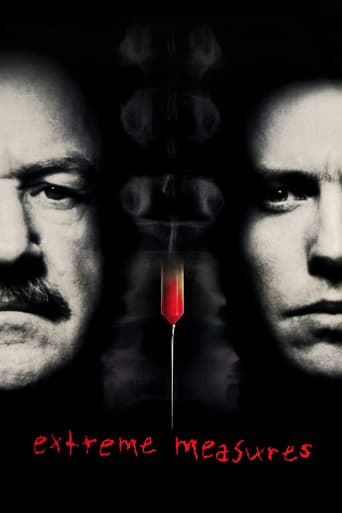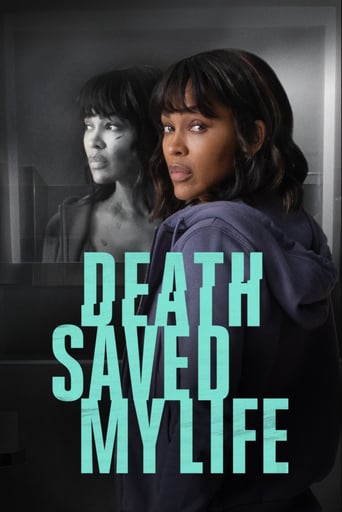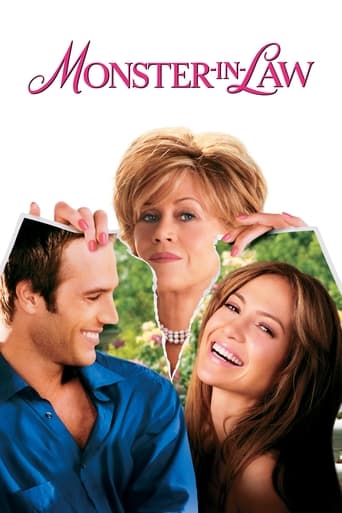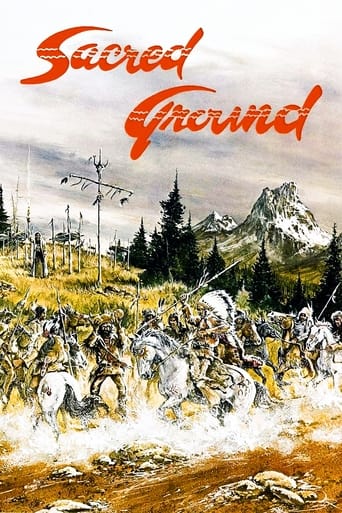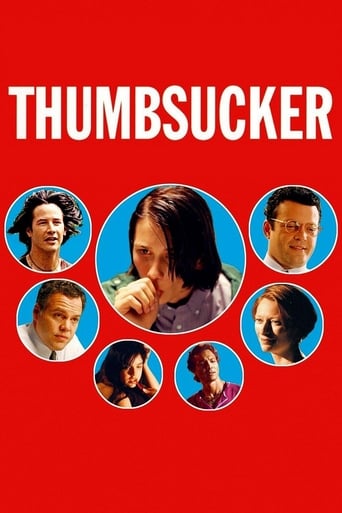Three Faces West (1940)
Viennese surgeon Dr. Braun and his daughter Leni come to a small town in North Dakota as refugees from Hitler. When the winds of the Dust Bowl threaten the town, John Phillips leads the townsfolk in moving to greener pastures in Oregon. He falls for Leni, but she is betrothed to the man who helped her and her father escape from the Third Reich. She must decide between the two men.
Watch Trailer
Cast
Similar titles
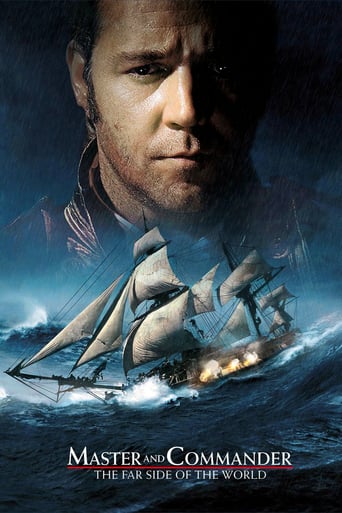
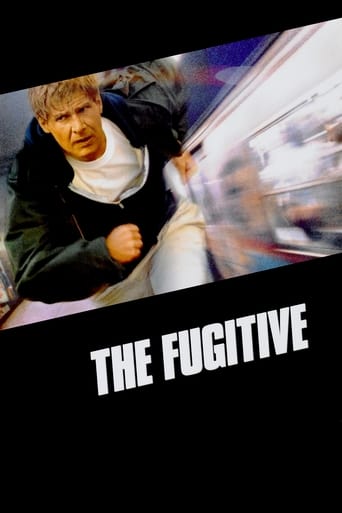
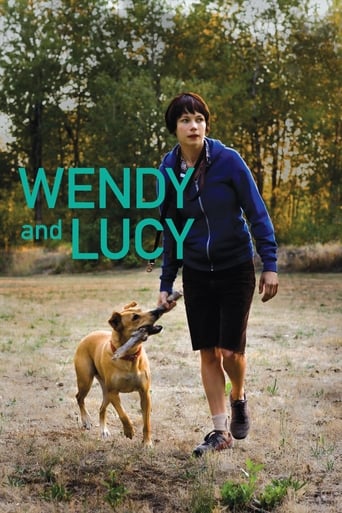
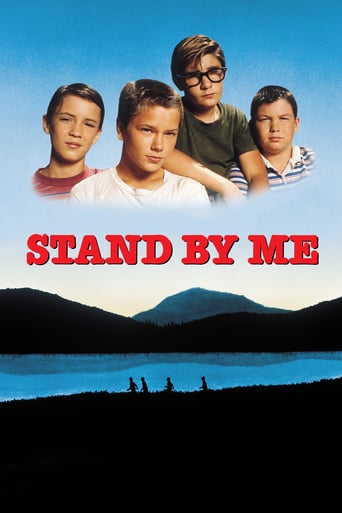
Reviews
To me, this movie is perfection.
Good movie, but best of all time? Hardly . . .
Better Late Then Never
Best movie ever!
Taking part in a poll on ICM for the best movies of 1940,I started looking for movies which came out that year. Solely knowing John Ford's magnificent The Long Voyage Home as the only thing he starred in this year,I was intrigued to find out that John Wayne had done another movie in 1940 which sounded like it deals with the same themes Ford touched on in 1940's The Grapes of Wrath,which led to me facing west.The plot:Emigrating to the US as the horrors of WWII grip Europe, Dr. Karl Braun and his daughter Leni 'Lenchen' Braun settle in a Dust Bowl farm town in North Dakota. Welcomed by John Phillips,the Braun's learn that the locals are desperate for new farming machines,but are told by the Department of Agriculture that they must keep to the old ways. Believing that there is no hope left in the Dust Bowl,Phillips makes plans with his fellow townspeople to all travel to a new home,as Leni finds out that her fiancé has embraced Nazism.View on the film:Limiting any action to a dirt road chase to the end credits, director Bernard Vorhaus & cinematographer John Alton plant an atmospheric character study,that digs up the lingering effect of the 1929 crash,with dour brown and bronze colours lining the stomach of the town. Displaying a sharp ear for sound,Vorhaus listens in on the towns waiting for FDRs New Deal,via rustling howls and an eerie yowl from the wind signalling the wasteland state of the country. Carving the Nazi fiancé to be the most film-like element,the screenplay by F. Hugh Herbert/Joseph Moncure March and Samuel Ornitz wonderfully keep the drama grounded,from the Braun's getting a mixed reaction to their arrival,to Phillips difficulties leading him to not reach his hopes of being the cowboy who rides during sundown and saves the town. Joined by a fittingly fragile Sigrid Gurie as Leni,The Duke shakes his (big C) conservative image with a striking performance as Phillips,that rings a warm sincerity for the New Deal facing the former Wild West.
This film fits into an odd gap - in John Wayne's career, into the tenor of the times, into the evolution of cinema. But it's highly entertaining, at times visually spectacular, and really a lot better than it has any right to be.The depiction of the Dust Bowl is remarkably strong. There's grit and dust in every shot. Many of the scenes are painted in strong, noir-ish tones. Against this backdrop, we have a solid little story about an Austrian doctor and his daughter finding a new new home. It could have been mere Hollywood fluff, but it all rings quite true. The touch of propaganda you might expect in a wartime production is restrained and palatable, with a positive focus on emotions rather than a negative one on ideologies.All this is abetted by strong performances from the three leads. John Wayne is only about a year along from his breakthrough role in Stagecoach, and proves himself capable of surprising depths. He's as likable here as he's ever been, but also more human. And much more of an acting talent than we might usually give him credit for. This is one of those overlooked Wayne entries, like Island in the Sky, or Hondo, where you can really see how he earned his star billing. Sigrid Gurie is a perfect match. She runs a gamut of emotions, yet remains always appealing.It's true that the second part of the story does cover some of the same historical ground as The Grapes of Wrath. But the two films don't really overlap. We have here a happier outcome, and much more of a small-scale adventure-drama than an allegorical social commentary. Obviously, this film isn't on the same level artistically as John Ford's masterpiece. But it's also far better than the mere B-movie it might have been.If you're a fan of John Wayne, or have any affection for the workmanlike dramas of Hollywood's golden era, this film is going to be a very welcome discovery.
This is really quite a remarkable picture, reminiscent more of the Warners Brothers films of the era than something Republic Pictures might have put out. Nominally it's considered a Western (I saw it today on the Encore Western Channel), but the only connection to that genre it has would be it's setting, as itinerant farm workers battle Dust Bowl situations in their settled home land only to be forced to move once again when conditions conspire against them. Leading the charge as it were, is John Wayne in a role that has him confronting the elements, along with a hostile contingent that opposes his choice of destination (Oregon) for the sunny climes of California. The story is wrapped around a budding romance between Wayne's character, and that of Sigrid Gurie as Leni Braun, daughter of an Austrian refugee, both of whom escaped the rise of Naziism in 1940's Europe. The story is complicated even further when it's discovered that Leni's former fiancé (Roland Varno), presumed dead the past two years, resurfaces to place his claim on Leni's heart once again.That last aspect of the picture just mentioned is somewhat troubling when one considers the initial premise of the story. Dr. Eric Von Scherer (Varno) presumably gave his life to help the Braun's escape from tyranny to the United States under a sanctuary program for refugee doctors. He turns up in the latter part of the picture attempting to convince the Braun's that life now under the Reich would be highly advantageous if they returned to Europe. The disconnect blows by pretty quickly, but if you know anything about history, the scene will have you going 'huh?' more than once before it's over. However it leads directly to Leni and John Phillips (Wayne) reconciling their feelings for each other, thereby allowing the movie to close on the Duke and his girl exchanging nuptials for the happy ending.Followers of John Wayne's early films will note that this was one of the rare occasions that you got to catch the up and coming legend in a jacket and tie! I've only seen that once before in 1933's "His Private Secretary". Once in his element though, Wayne's character is pretty much as you would recall him from his early Lone Star and Republic Days, dressed in pioneer attire and ruggedly individualistic. The romance with Sigrid Gurie's character plays a lot more emotionally than virtually all of his prior pictures, and it's rather intriguing to see him remain stoic through the heart wrenching scenes. Gurie was quite convincing as the torn lover between a loyal past and a bright future; her decision was made somewhat easier by the developments described earlier.One has to assume that the title of the movie represents Wayne's character along with the Braun's, otherwise it doesn't make much sense, though that didn't stop the naming of dozens of era pictures with no connection to their title. I managed to catch this one today on Encore Western's self proclaimed 'John Wayne 101' celebration in honor of his 101st birthday. I don't know if the film is commercially available, but it would be worth your while to scour the cable channels for this listing if you're a Wayne fan. It steps just outside of the early mainstream for The Duke, and offers a more introspective character than one is used to seeing in his earlier films.
An old fashion moral tale with sweetness. John Wayne gives a great performance, and Sigurd Gurie shines as the daughter of a Viennese Surgeon (Charles Coburn). The historical significance of this picture is accurate and compelling, though rather melo-dramatic. Ms Gurie gives a kind and sensitive performance in one of the finest roles of her brief career. The Oklahoma dust bowl is the setting for this early 20th century tale that keeps an eye on several moral issues. It tells the brave tale of poor farmers who were strongly bonded with "good honest sweat", and who face a decision to stick together and head west. Spencer Charters, playing the town veterinarian/comedian gives a fine performance as do many of the players in this one. Well worth a watch.
